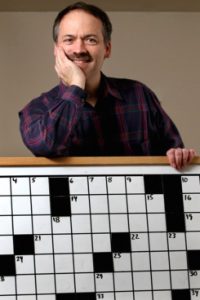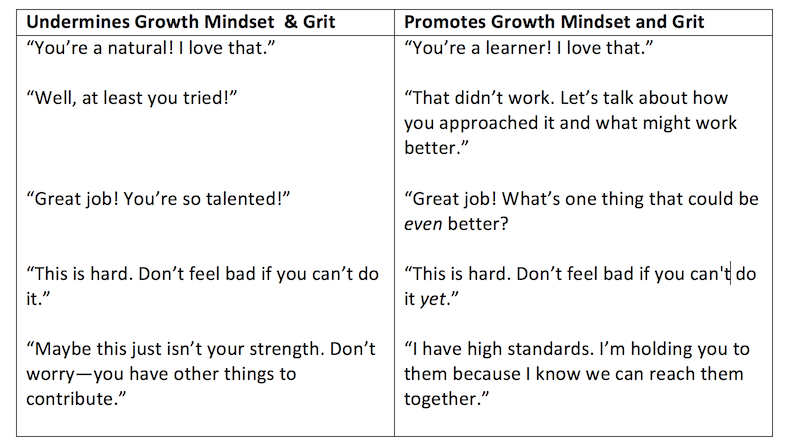 Why is it that we have a tendency to attribute “natural talent” to those people who excel in their field? Seems to me that, back in the 19th century, Friedrich Nietzche was on point when he noted that when we attribute talent to a God-given gift, we let ourselves off the hook.
Why is it that we have a tendency to attribute “natural talent” to those people who excel in their field? Seems to me that, back in the 19th century, Friedrich Nietzche was on point when he noted that when we attribute talent to a God-given gift, we let ourselves off the hook.
No one can see in the work of the artist how it has become…Our vanity, our self-love promotes the cult of the genius…For if we think of genius as something magical, we are not obliged to compare ourselves and find ourselves lacking. (Nietzche, as quoted in Grit by Angela Duckworth)
But is that what we should do? Experts like Carol Dweck and Anders Ericsson, and many of the people we proclaim as “geniuses,” would say no.
 Angela Duckworth’s 2016 book Grit: The Power of Passion and Perseverance provides a good synthesis of the reasons that those experts at the top of their field succeed. And, believe me, it’s not simply attributable to talent.
Angela Duckworth’s 2016 book Grit: The Power of Passion and Perseverance provides a good synthesis of the reasons that those experts at the top of their field succeed. And, believe me, it’s not simply attributable to talent.
The Grit formula
Duckworth calls on the research of the aforementioned experts along with countless experts from a wide variety of fields – from sports to academics to cartooning to puzzle-masters – to make her point. Success is determined by what she calls “Grit.” And, the two-part formula for grit is based on passion and perseverance:
Talent x effort = skill
Skill x effort = achievement
To help us better understand this formula, Duckworth provides the following explanation:
Talent is how quickly your skills improve when you invest effort. Achievement is what happens when you take your acquired skills and use them. Of course, your opportunities – for example, having a great coach or teacher – matter tremendously too, and maybe more than anything about the individual (p. 42).
She explains this succinctly in her six-minute TED Talk.
Duckworth’s book highlights examples of what happens when people devote themselves to something that they deeply enjoy (passion) and stick with it, even when the going gets tough. She tells the story of a young entrepreneur who bragged to her about his success in raising “thousands of dollars” for his start-up company, involving tremendously hard work and several all-nighters.
While Duckworth was impressed, she didn’t let him off the hook. She stressed to the young entrepreneur that while the type of intensity he described is good, stamina – sticking to the project even when going gets hard – is the key to grit and to becoming increasingly better at what one does.
Bloom’s skill development stages
To further explain her formula, Duckworth expands on Benjamin Bloom’s three different stages of skill development. Developing expertise begins with a discovery: Someone becomes intrigued by something they see or encounter, and they want to learn how to do it. As one example, she points to New York Times Puzzle Master Will Shortz, who first encountered a puzzle book at a very young age. “I was just entranced by it…I just wanted to make it my own” (p. 108).

So, the “hook” was set for Shortz, but that was just the beginning for him. This discovery phase led to a development phase for Shortz, where he not only solved puzzles, but began to create puzzles himself (Bloom’s “Middle Years”). And, finally, he committed to persisting and building stamina through practice, trial and error and success, eventually becoming an expert (Bloom’s “Later Years”). You can hear Will provide a puzzle every Sunday morning on National Public Radio, or you can click here.
A key factor in becoming an expert is something that Anders Ericsson calls “deliberate practice,” where people develop their expertise by honing in on a difficult aspect of their specific activity. “Rather than focus on what they already do well, experts strive to improve specific weaknesses. They intentionally seek out challenges they can’t yet meet” (p. 121).
For spelling bee students, it’s looking for difficult words and practicing those words they misspell, over and over again. For aspiring Olympic athletes, it may be setting deliberate goals to reduce the time of a specific relay or run, often with the help of a coach. For writers, it might be writing and rewriting specific sentences until they “sing.”
And, happily for those of us who have been around longer than others, maturity helps…well, maybe not in physical prowess, but in expertise. Duckworth notes, “Over time, we learn life lessons we don’t forget, and we adapt in response to the growing demands of our circumstances. Eventually new ways of thinking and acting become habitual. There comes a day when we can hardly remember our immature former selves” (p. 89).
That’s a comforting thought but it also prompts a wondering…for all of us: “What if we had started earlier? What if we had realized the importance of stamina, developing skills, and practicing them in deliberate ways?”
The role of growth mindset
Throughout the book, Duckworth refers to Carol Dweck’s growth mindset research. People with growth mindsets believe that intelligence is malleable. They understand that concerted effort can help them become better at mastering a skill or deepening their knowledge. Those with fixed mindsets believe that intelligence is “fixed” and there’s nothing that can be done to change it.
Based on her collaboration with Dweck, Duckworth created this useful chart:
 The message we hear from Duckworth and Dweck is this: It’s important to recognize that, with effort and persistence, people can get better at things. Teachers, parents, mentors should urge their “charges” to stick with it, using authentic encouragement and language like that described in the right-hand column of the table above. Encouraging grit and the growth mindset is important for everyone, but particularly for children living in generational poverty, who may not experience many opportunities to work toward mastery.
The message we hear from Duckworth and Dweck is this: It’s important to recognize that, with effort and persistence, people can get better at things. Teachers, parents, mentors should urge their “charges” to stick with it, using authentic encouragement and language like that described in the right-hand column of the table above. Encouraging grit and the growth mindset is important for everyone, but particularly for children living in generational poverty, who may not experience many opportunities to work toward mastery.
A book that entertains and inspires
What would Nietzche think about grit? I think that if he was still around to listen to all the conversation about honing our expertise through hard work, practice, and persistence, he just might give us a nod.
Whatever the case, Duckworth’s Grit is an inspiring and entertaining read for those of us who want to further develop a skill in which we are interested but still haven’t mastered. Her reassurance that we can get better will give us the passion and stamina to persevere.
This two-minute video was developed by SportScotland to help young athletes understand what ‘talent’ is and how you can get good at a sport. It might be fun to share with students as well as faculty. (If you or they find the Scottish accent a challenge, cut on the closed captions!)

0 Comments on "Angela Duckworth on Grit: Moving from Talent and Skill to Achievement"